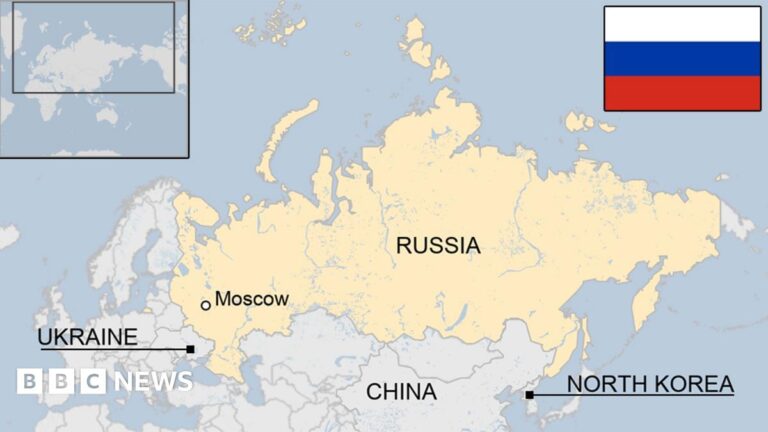Russian Foreign Minister Sergey Lavrov issued a stern warning to the United States against “exploiting” international alliances during his high-profile visit to North Korea, where he met with leader Kim Jong Un. The meeting, which marks a rare diplomatic engagement between Moscow and Pyongyang amid escalating global tensions, underscores Russia’s efforts to strengthen strategic partnerships in East Asia. Lavrov’s remarks, delivered amid ongoing disputes over U.S. influence in the region, signal Moscow’s intent to challenge Washington’s geopolitical maneuvers as the new Cold War dynamics unfold.
Russia’s Lavrov Cautions United States on Exploiting International Alliances During North Korea Visit
During a rare diplomatic visit to Pyongyang, Russian Foreign Minister Sergey Lavrov delivered a pointed message to the United States, cautioning against leveraging international alliances for unilateral advantage. Meeting with North Korean leader Kim Jong Un, Lavrov emphasized the need for respect and balance in global partnerships, warning that the U.S.’s efforts to reinforce its influence could destabilize ongoing diplomatic dialogues. Lavrov highlighted that alliances should foster cooperation rather than serve as tools for coercion or exclusion.
The discussions also underscored Moscow’s intent to deepen ties with Pyongyang amidst heightened tensions on the Korean Peninsula. Key topics reportedly included:
- Regional security dynamics
- Economic cooperation initiatives
- Multilateral diplomacy efforts
| Key Focus | Russia’s Position | US Policy |
|---|---|---|
| Security | Promotes dialogue | Enforces sanctions |
| Alliances | Calls for mutual respect | Seeks strategic dominance |
| Economic Ties | Supports partnerships | Limits trade |
Strategic Implications of Lavrov’s Meeting with Kim Jong Un for Regional and Global Diplomacy
Lavrov’s rare visit to Pyongyang and his high-level meeting with Kim Jong Un marked a pivotal moment in the recalibration of regional alliances. At the heart of their discussions was a mutual pushback against U.S. influence in East Asia, signaling a convergence of interests between Russia and North Korea that challenges Washington’s strategic calculations. This development not only complicates the current geopolitical landscape but also showcases Russia’s intent to assert itself as a key power broker in Northeast Asia. Analysts highlight that such a partnership could embolden North Korea’s international posture, while simultaneously providing Moscow with an opportunity to expand its diplomatic leverage in the region.
Key strategic takeaways from the meeting include:
- Counterbalancing the U.S.: Both nations emphasized resistance against what they termed “U.S. exploitation of alliances,” indicating a shared interest in undermining American-led security frameworks such as the Quad and AUKUS.
- Energy and Military Cooperation: Early talks hinted at possible Russian support for North Korea’s infrastructural projects and military capabilities, potentially reshaping defense dynamics on the Korean Peninsula.
- Diplomatic Signaling: The visit sent a clear message to global powers that Russia is willing to deepen ties with isolated states to gain footholds in strategically sensitive areas.
| Aspect | Potential Impact |
|---|---|
| Security Alliances | Weakened U.S.-led coalitions in Asia-Pacific |
| Economic Ties | New trade and energy partnerships circumventing sanctions |
| Diplomatic Influence | Enhanced Russia-North Korea presence in international forums |
Experts Recommend Enhanced Multilateral Dialogue to Address Growing Tensions in Northeast Asia
Amidst rising geopolitical anxieties, international experts emphasize the imperative of strengthening multilateral channels to ease escalating tensions throughout Northeast Asia. Analysts argue that unilateral approaches and alliance-driven posturing risk exacerbating instability in the region, urging involved parties to prioritize sustained dialogue that incorporates all key stakeholders-including North Korea, South Korea, China, Russia, Japan, and the United States.
Key recommendations highlighted include:
- Establishing new, inclusive forums to facilitate transparent communication and conflict resolution.
- Encouraging reciprocal confidence-building measures to reduce military provocations.
- Promoting economic interdependence as a stabilizing tool.
- Leveraging international organizations to mediate sensitive disputes.
| Stakeholder | Primary Concern | Recommended Action | |||
|---|---|---|---|---|---|
| North Korea | Security guarantees | Engage in normalized diplomatic talks | |||
| United States | Alliance cohesion | Balance strategic support with dialogue openness | |||
| China & Russia | Regional influence |
| Stakeholder |
Primary Concern |
Recommended Action |
|
| North Korea | Security guarantees | Engage in normalized diplomatic talks | |||
| United States | Alliance cohesion | Balance strategic support with dialogue openness | |||
| China & Russia | Regional influence | Coordinate diplomatic initiatives to ensure stability | |||
| South Korea | Peace and reunification prospects | Promote inter-Korean dialogue and cultural exchanges | |||
| Japan | Security threats and territorial disputes | The Conclusion
As the meeting between Russian Foreign Minister Sergey Lavrov and North Korean leader Kim Jong Un concludes, their joint message underscores growing tensions amid shifting global alliances. Lavrov’s cautionary remarks to the United States highlight Moscow’s intent to challenge what it perceives as Washington’s strategic maneuvering in the region. Observers will be closely watching how this high-profile engagement impacts the balance of power on the Korean Peninsula and beyond, as geopolitical dynamics continue to evolve. |




